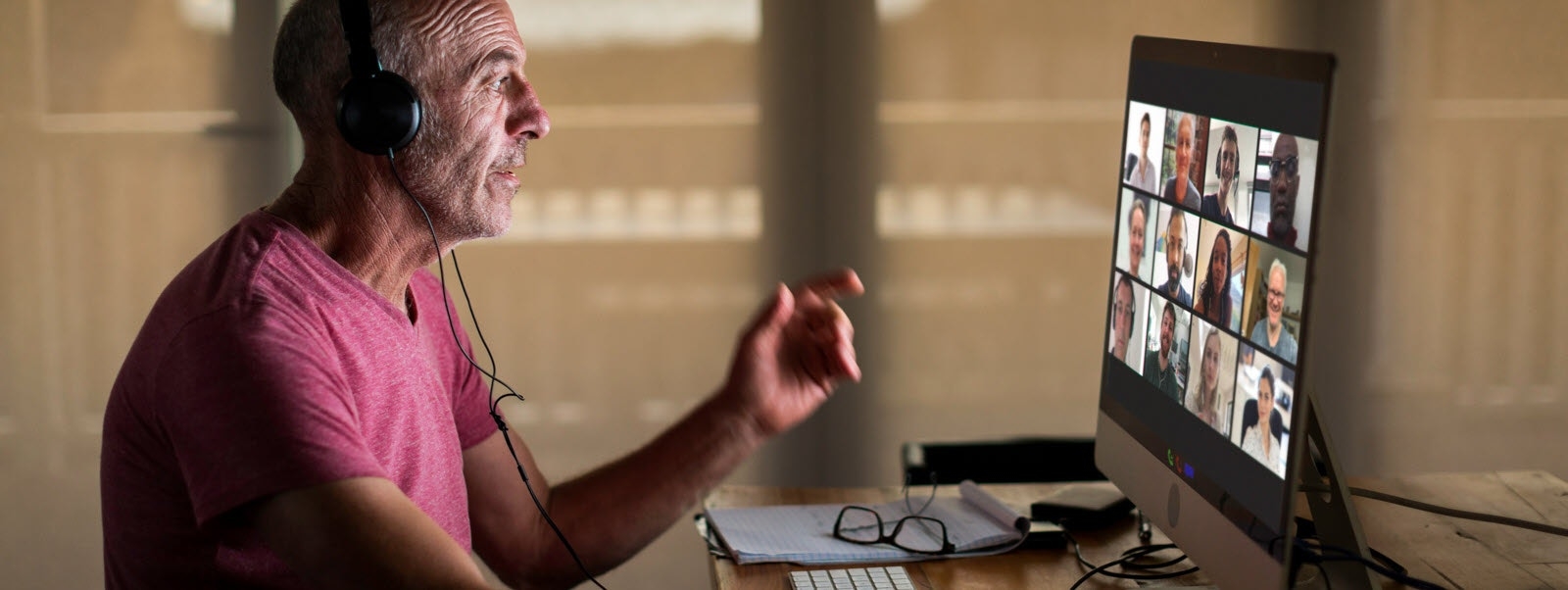The COVID-19 pandemic has raised a number of essential, and time-sensitive, questions for companies and their directors. Robert C. Pozen, a senior lecturer at the MIT Sloan School of Management and a nonresident senior fellow at the Brookings Institution, spoke recently with Oliver Wyman partner Chaitra Chandrasekhar about COVID-19 and the board’s role throughout this crisis.
Pozen, the former executive chair of MFS Investment Management and the former president of Fidelity Investments, was also a director of BCE (the parent company of Bell Canada) and of Medtronic, where he was chair of the finance committee. He is currently on the boards of Nielsen Holdings and IFC Asset Management Co. (a subsidiary of the World Bank Group), and he was previously on the boards of several nonprofits; he is also a senior advisor to Oliver Wyman. At Oliver Wyman, Chandrasekhar advises senior decision-makers across the private and public sectors on questions related to strategy, digital transformation, and data-driven innovation. She served as a 2019 NACD Blue Ribbon Commission commissioner.
Some insights from their Zoom conversation in mid-April are below:
Chaitra Chandrasekhar: How does a crisis change the role of the board?
Robert C. Pozen: The board needs to be more proactive, but it can’t be micromanaging. That’s the overarching challenge. The solution is for the board to be proactive in asking management to present information to them quicker and in more depth than before. As a result, a board that [usually] meets four to six times a year is going to meet a lot more often. One board I was on during a crisis met 19 times in a year. You can meet via Zoom or on conference calls.
Chandrasekhar: What do you mean by “proactive”?
Pozen: I see three steps in dealing with a crisis. The first is the board needs to understand the nature of the crisis and how it impacts the company. The directors need to be particularly sensitive to downside risk in these crises: compliance fines, projected cash flows, reduced capital expenditures. They need to know what the impact is on the annual operating plan.
The second step—which may be part of step one or at least follow quickly—is to ask management to present an action plan to deal with the crisis. This is in part a revision to the annual operating plan. Management writes the plan, and the board approves or modifies it. It should address the financial side. Are we going to, for instance, reduce or eliminate stock repurchases? Are we going to go to the banks and ask for covenant relief, or can we ask to draw down our credit lines? Are we going to cancel planned transactions or capital expenditures? Do we need to start new projects to deal with the crisis?
The third part is ongoing monitoring. The first two steps happen fast; the third is ongoing—starting after the immediate response to the crisis and going on for a year or more. From a process point of view, the board allocates responsibility to different committees. The compensation committee needs to focus on whether and how to revise [compensation] plans if the stock price drops radically. The governance committee may want to focus on succession issues. The audit committee needs to become proactive about financial statements and reports, like 10-Ks.
Chandrasekhar: How fine is the line between oversight and micromanaging?
Pozen: It’s a very fine line. One danger is that you just get in management’s way, making it more difficult for them to do their job. Another is that management won’t feel accountable if they feel like they haven’t made all these decisions, if they feel the board has second-guessed them.
Consistency is important. If the board says, “We really want to see your revised operating plan and what you’re proposing on capital allocation,” then management still has responsibility and the board can choose to modify the strategy. But once everyone agrees on the revised operating plan and strategy, the board has to let management carry that out. The board can’t say, for instance, “We decided we were going to cut out all share repurchases,” and then a month later say, “We want to reinstate them all.”
Chandrasekhar: Is there a difference between crises that impact a single company versus a broader group? Are there lessons from other crises, like the 2008 financial crisis, that apply to the COVID-19 crisis?
Pozen: Most crises affect individual companies or industries, or regions. Although the 2008 financial crisis was broad, it did not extend to all countries and all industries. And the fact that it was caused by the financial industry means there was a much narrower focus. It was more easily understood.
This COVID-19 crisis is different in that it affects every country in the world. And the level of uncertainty is much higher because there are so many things we don’t know. A board faced with such uncertainty needs to ask management for a number of scenarios, from best case to worst case to something in between. And ask how the company will respond to these different scenarios.
Chandrasekhar: How and when should broader strategic questions be considered? “Is our five-year plan still on track or does it need to be revised?” Or, “Are there new opportunities surfacing that may not have existed before the crisis?”
Pozen: This is part of the third phase, the monitoring. In a broad crisis like this, there will be important implications for your three-year, five-year, or whatever plan. It’s up to the directors to say, “Now that we’re somewhat stabilized after the crisis has ebbed, let’s think now about the strategic implications.”
There may be opportunities to buy companies that have been beaten down by the crisis. Maybe we need to consider being acquired because we can’t remain viable in this situation. Or we’ve always thought of ourselves as having a physical presence, but now maybe we need to really shift to being 90 percent online up from 30 percent. Maybe we’ve learned something important about technological innovation. Maybe we need to change our supply lines because we’re not going to be able to depend on certain countries or companies.



